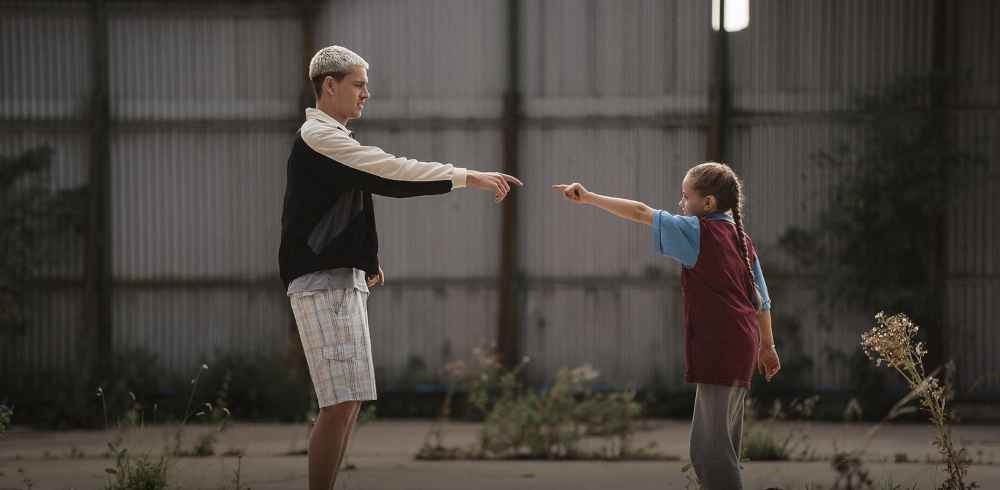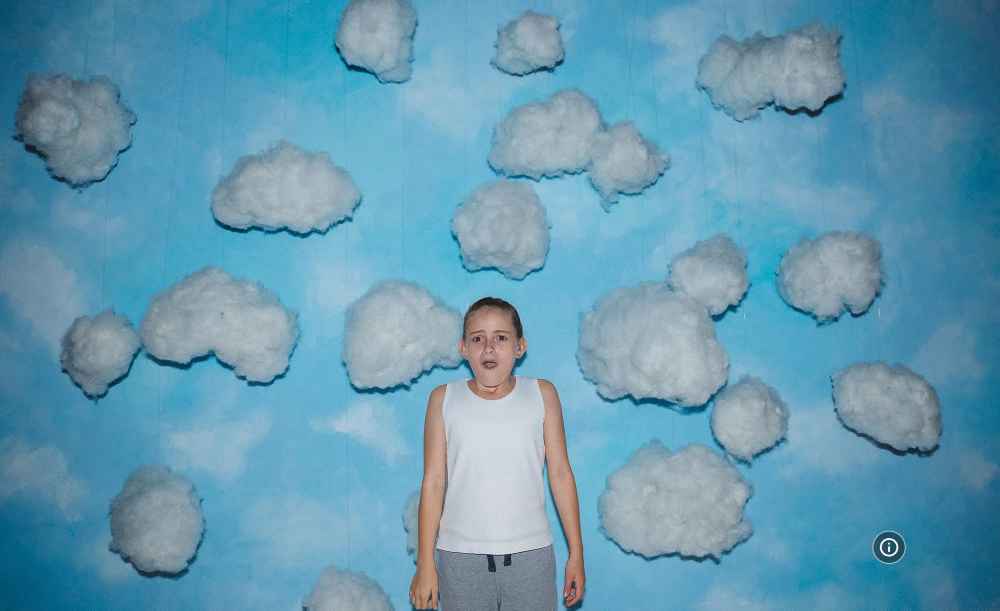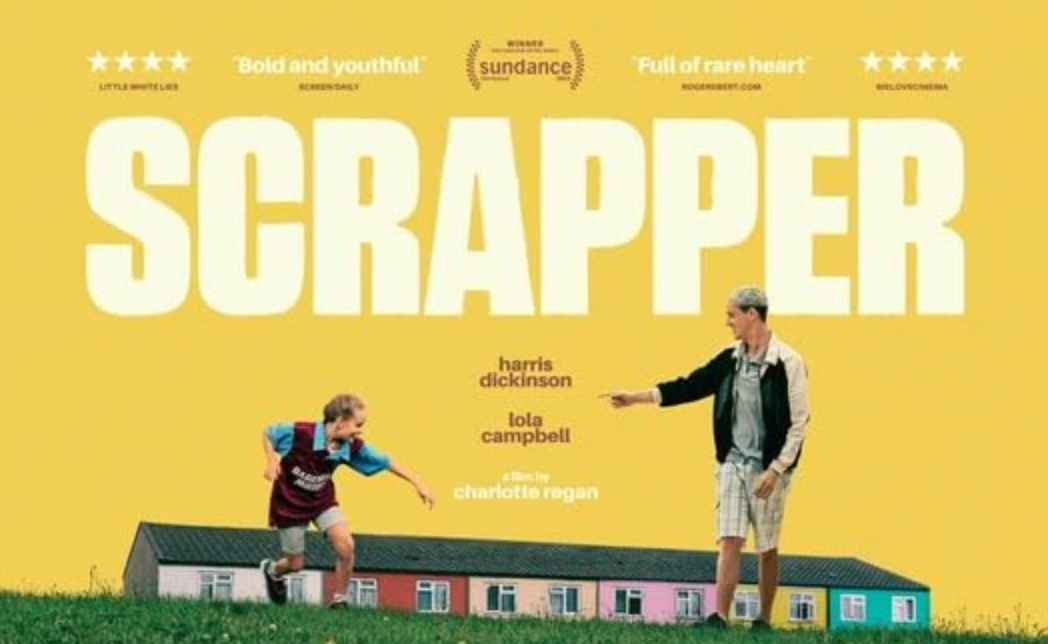By Lara Lippin, Third Year, English
Scrapper, British film director Charlotte Regan’s debut feature, is a bittersweet insight into childhood grief within working class Britain.
The film follows Georgie ( Lola Campbell), a charming 12-year-old girl who lives by herself after the passing of her single mum. Georgie survives by herself in their council house, fooling her teachers and social workers with witty tricks that echo something out of Home Alone.
Without any authority watching over her (apart from her uncle ‘Winston Churchill’ of course!), Georgie spends most of her time with her best friend Ali (comically played by Alin Uzun), stealing bikes and collecting scraps to make ends meet.

Despite this newfound freedom, Georgie’s façade is upended when her biological dad, Jason (Harris Dickinson, Triangle of Sadness and Beach Rats) turns up hoping to grow some sort of relationship with Georgie after hearing the passing of her mum.
Despite the serious undertones of the film surrounding grief and morality, Regan does not let the story succumb to the stereotype of what a British realism film should be. In conversation with The Guardian, Regan expressed how a lot of the working-class cinema she viewed growing up ‘was so joyless. Endless trauma. The characters were allowed one moment of happiness in the whole film’.
To combat this dismal representation of working-class life with the help of film director and cinematographer Molly Manning Walker (director of the anticipated How to Have Sex), Regan illuminates the film with bright almost fluorescent colours that make the estate feel like a safe playground for Georgie to reside in.

In combination with the fun colour palette, the camera’s fast paced movement, radiates the energy and lust for life that the young protagonist still has despite the hardships she faces.
Within the film, Regan also interestingly scatters mockumentary style montages of observers in Georgie’s life, from her playground enemies to the grey forgetful social workers. Although at times these can feel slightly out of place and the stereotypical presentation of social workers and teachers did feel like a tired joke, the surreal humour of the cinematography gives an emphatic insight into Georgie’s understanding of the world around her.
Despite the minor technical flaws, Lola Campbell’s nuanced performance shines through. Amongst the lively cinematography and witty comedy, Georgie’s understanding of grief is beautifully portrayed by Campbell’s unfiltered emotion.

After Jason discovers the growing scrap pile Georgie has been accumulating in her mother’s room, Georgie’s yearning to be closer to her mum is finally unveiled. Although Georgie cannot express her grief through words, her desire for the only parental figure she knows is understood through her physical display of scraps.
Despite his previous incapability of being there in the past, by understanding Georgie’s grief Jason begins to realise the importance of his presence in her future. Georgie will never being able to reach her mother again and Jason will never be able to get back the 12-years he wasn’t present, however Regan offers a hopeful ending that the pair will help each other on their personal journey of grief and reconciliation.
Featured Image: IMDb
Scrapper is showing at Watershed until 14th September.








